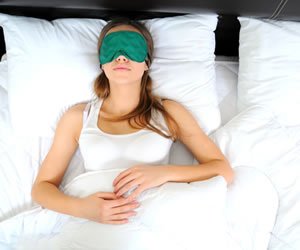Last Updated on June 27, 2022 by Laura Turner
“To sleep, perchance to dream – ay, there’s the rub”
~ Hamlet
The irony of being on night float in psychiatry is that I would write orders for a lot of sleep medications while struggling myself to stay awake as the hours crept by. Then, shift over and needing to fall asleep, the sunshine and bustle of the world waking up would make it impossible for to fall asleep the next morning – which was critical given I had to be back at the hospital that evening. As medical students and residents (and likely as attendings, but I have no experience there), sleep can be a struggle. First, there simply may not be enough time to get all the sleep we want. Then, there are the often random schedules, flipping from day to night and back again, wreaking havoc on our circadian rhythms. Poor sleep can impact not just our own lives, but also our ability to care for patients. Sleep deprived, our ability to make decisions or simply empathize with our patients and get along well with our colleagues can all be affected. While residency work hour rules may have redistributed the demands somewhat, plenty of residents – and medical students – carry around a heavy sleep debt.
Our circadian rhythm is designed to make us most sleepy between about midnight and 7am. When we work overnight, we tend to be continually somewhat sleep deprived, averaging two to four hours less sleep than normal. While some claim to only need a few hours of sleep, most of us need 7 to 9 hours to perform at our best. While this may be impossible at times, here are some tips and tricks for maximizing the sleep time you do have, with a particular focus on surviving night float.
Getting to sleep:
· Buy some trendy sunglasses: One of the challenges of night float is getting enough sleep during the day. When I was on night float, I would be dying for some sleep about 3 to 5am, but by the time your shift was over, the sun is out, the birds singing, and I had an additional burst of energy. That sun exposure puts a screeching halt on your melatonin production, thereby decreasing your sleep drive. Hence, many an experienced night shift attending will recommend a trendy set of shades to wear home from work, helping ease the transition to sleep. Although you will almost certainly experience a certain level of post-shift euphoria, it’s important to cut down on sun exposure so you can get to sleep.
· Reduce pre-bed blue light exposure: Bright light at night can disrupt your circadian rhythm, and blue light in particular seems to be to blame. Experts recommend reducing screen time before bed, but that has never been a realistic option for me, particularly during medical school when I was studying on my computer or working on admission notes up until bedtime more often than not (or watching Netflix, but that sounds less noble). Leave it to technology to solve a problem of its own creation, however. There are now programs like F.lux, Night Filter or Easy Eyez that reduce the blue light produced by your computer at night.
· Set yourself up for success: Do your best to create a “night-like” environment at home. Hang heavy curtains in your bedroom to block light and reduce external noise. If it’s still too bright, consider and eye mask. You may want to consider ear plugs, but only of you can reliably hear your alarm through them. Let your family and friend know what your schedule will be and set your phone on do not disturb – nothing like a call from your mom just as you have fallen to sleep to let you know she just found a great new recipe for lentil soup. . .
· Avoid caffeine close to bedtime: Remember that the average half-life of caffeine is 5 – 6 hours. Although the end of your shift can be the time you most feel you need a boost, try to stave off the temptation as it can be much more difficult to fall asleep if you’ve just downed a venti double shot two hours before you try to fall asleep. For me, it worked to stop drinking caffeine about half to two-thirds of the way through my shift, which is pretty much the same pattern I have for my daytime shifts.
· Be realistic about what you can get done when not at work: It can be tempting to stay up for a significant part of the day, running errands, scheduling repairs, and getting done various tasks that can only happen 9-5 on a weekday when you’re usually at work. Do your best however to keep these to a minimum and preserve your sleep hours.
· Avoid alcohol: While it might help you fall asleep, alcohol can decrease the quality of your sleep later in the night.
· Consider sleeping aides with care: From melatonin to Tylenol PM available over the counter to prescription medications like Ambien and trazodone, there are many options out there to aid in getting to sleep. While these can be more effective than counting sheep, people react differently and I often found that, while I might get to sleep faster using a sleeping medication, I would wake up feeling much groggier than had I allowed myself to fall asleep naturally. In sum, for some they are critical to surviving these chaotic sleep schedules, but are not helpful for everyone. Also, their use has not necessarily been show to increase alertness on subsequent shifts.
Staying awake:
· Use light: While you want to minimize light at the end of your shift, by maximizing light exposure at the beginning of your day can help you adjust to the new sleep cycle. Light boxes are available relatively inexpensively and spending 15 to 30 minutes at the start of your day may provide the boost you need.
· Stay engaged: If you feel yourself at risk of drifting off, change whatever you’re doing. Check on a patient, talk to colleagues and staff, take a walk, make a midnight run to the cafeteria. For me, by 5am I could really feel my body lag. Taking a walk to check in with nurses on the floor could help wake me back up and keep me going through the end of the shift.
· Grab a nap: If there is a lull in the evening, a 30 minute nap may work wonders. Consider having caffeine before you lay down in order to decrease your post-sleep inertia. Just make sure your pager is loud enough to wake you up!
· If things are intolerable, talk to your PCP about medications: The most used and best studied is, of course, caffeine. Caffeinating at the beginning of the shift can help with alertness. There are prescription “wakefulness aides” available as well. Modafinil and armodafinil, for instance are non-amphetamine medications that are currently indicated to treat Shift Work Sleep Disorder – basically extreme fatigue experienced by some when doing shift work – and trials have shown that their use does increase alertness during a night shift. However, for some these medications can make it harder to fall asleep during the day. Thus, if you’re really struggling staying awake on your night shifts despite attempts to improve your daytime sleep, you may want to talk to your PCP about medication options.
While most often we don’t have much choice with regards to our shifts during medical school and residency, if you have the option, choose shifts that start later and later rather than earlier and earlier. Because most individuals have a circadian rhythm slightly longer than 24 hours, most do best with clockwise shifts in schedule. Currently working shifts in the ED, I have found this to be true; it’s much more palatable to sleep in a little later the following day rather than have to set that alarm for even earlier.
When working a series of nights in a row there’s always the question of what to do on days off; remain on the shifted schedule or flip back to days? I was fortunate to have a full 2 nights off between 5 night work weeks and found I did best flipping back to days so I could get a couple of good night sleeps and do regular daytime activities with my family and friends. However, my colleagues with the same schedule varied in their approach, preferring to keep their nocturnal hours. For those with only one night off, it may be best to shift back only partially – being up for part of the day and going to bed late at night.
There is no “right way” to make it through extended periods of night float. However, you can take steps to improve both your sleep and your level alertness. Also, although I truly dreaded night float, I found it to be more fun than I expected and an excellent learning experience, even if I was rather sleep deprived throughout. Good luck!
“What hath night to do with sleep?”
― John Milton, Paradise Lost
References
Drake C. Shift Work and Sleep. National Sleep Foundation. http://sleepfoundation.org/sleep-topics/shift-work-and-sleep
UCLA Sleep Disorders Center. Coping with Shift Work. http://sleepcenter.ucla.edu/body.cfm?id=54.
Wright KP, Jr., Bogan RK, Wyatt JK (2013): Shift work and the assessment and management of shift work disorder (SWD). Sleep medicine reviews. 17:41-54.


